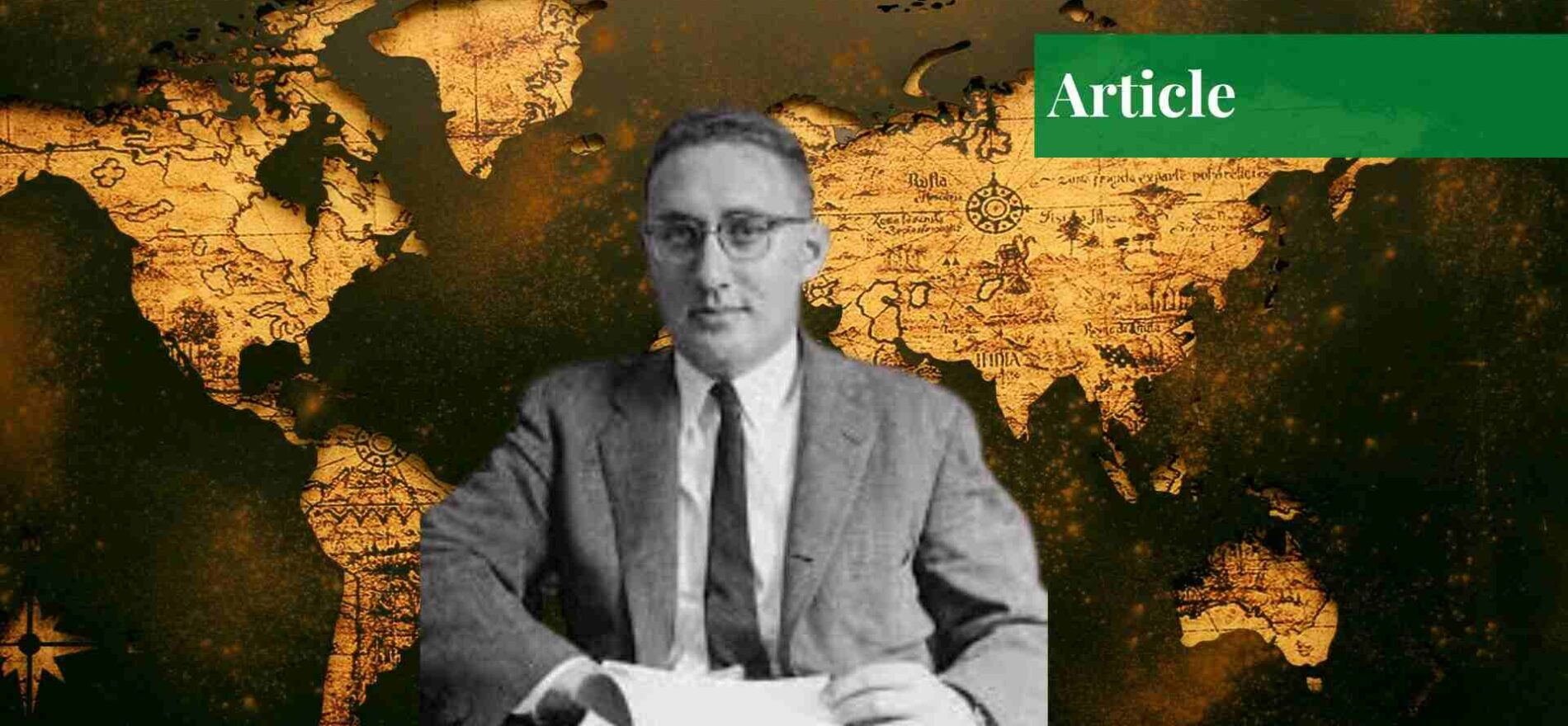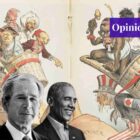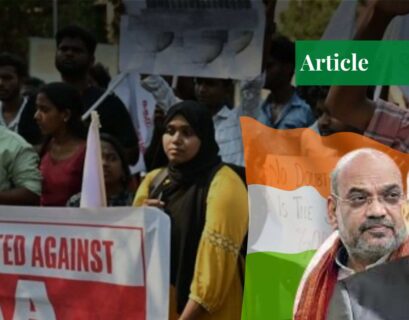Mr Naveed Hussain Mangi is pursuing a bachelor's degree in International Relations at the University of Karachi.
The Road to Power
The annals of foreign policy are replete with figures whose actions have left indelible marks on the world stage, and few are as polarizing as Henry Kissinger. While some eulogize him as a diplomatic maestro, others contend his legacy is copiously laced with blood. Indeed, a critical examination of Kissinger’s career reveals a complex tapestry of decisions that have had far-reaching and often devastating consequences.
Henry Kissinger’s ascent to the echelons of power was marked by opportunism and pragmatism. His involvement in preventing a Vietnam peace agreement during the 1968 election, ostensibly to curry favor with the emerging Republican nominee Richard Nixon, set the stage for a protracted and brutal conflict in Indochina. As Nixon’s national security adviser, Henry Kissinger played a pivotal role in the continuation of the war, contributing to the staggering death toll not only in Vietnam but also in Cambodia and Laos.
Middle East Policy
In the realm of Middle East diplomacy, Kissinger’s maneuvering, particularly in sidelining Secretary of State William Rogers, thwarted potential collaborations with the USSR that might have ushered in a peace agreement. The consequences of these decisions linger as the region grapples with ongoing conflicts, most notably the plight of the Gaza Strip and the West Bank.
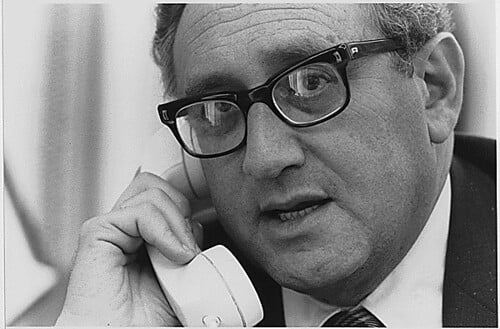
The willingness of Henry Kissinger to serve under a profoundly anti-Semitic president demonstrated a practical approach to foreign policy. Viewing Israel as a strategic asset to counter Soviet influence in the Arab world, he engaged in shuttle diplomacy that achieved short-term gains but sowed seeds of enduring strife. The current backdrop of the Israeli-Palestinian conflict reflects the enduring consequences of Kissinger’s geopolitical calculus.
Crimson Policies
Perhaps most damning is Kissinger’s role in the genocidal aftermath of the Vietnam War. His direct responsibility for every airstrike in Cambodia, coupled with his infamous order, “Anything that flies, on anything that moves,” paved the way for the Khmer Rouge regime and the deaths of an estimated two million Cambodians. The fact that the United States later backed this regime after its displacement by Vietnamese intervention adds another layer of moral complexity to Kissinger’s legacy.
Chile stands as another testament to Kissinger’s questionable ethical compass. His role in the overthrow and assassination of Salvador Allende, the democratic socialist leader, underscores a willingness to subvert the democratic processes of sovereign nations to align with Cold War ideologies. The subsequent endorsement of military tyrants like Augusto Pinochet and Jorge Videla only deepened the stain on Kissinger’s legacy.
Crimes of omission are equally glaring. In East Pakistan and East Timor, Kissinger’s inaction allowed for the exacerbation of conflicts with dire humanitarian consequences. The geopolitical chessboard, as manipulated by Kissinger, prioritized strategic interests over human lives.
A Bloody Legacy
Even after the turbulent 1970s, Kissinger remained a revered advisor, both within the United States and globally. His consultancy firm, Kissinger and Associates, provided counsel to governments worldwide, demonstrating a continuity of influence that persisted despite the shadows cast by his past decisions. His books such as World Order and Diplomacy continue to be part of university curriculum worldwide.
In the aftermath of Kissinger’s death at the age of 100, the dichotomy of his legacy persists. While some eulogize him as a colossus and peacemaker, others assert that his pursuits served the interests of political and economic elites, neglecting the welfare of ordinary people. The adulation and critiques that have flowed in the wake of his passing underscore the enduring debate over whether Kissinger lost any sleep over the human devastation his policies wrought across continents.
In the grand narrative of Kissinger’s legacy, one cannot ignore the bloodstains that mar the canvas. His realpolitik approach may have served the imperium he sought to consolidate, but it came at a profound cost. As we reflect on Kissinger’s impact, it is imperative to approach his legacy with a critical eye, acknowledging the intricate interplay between geopolitics and human suffering that defines his enduring influence.
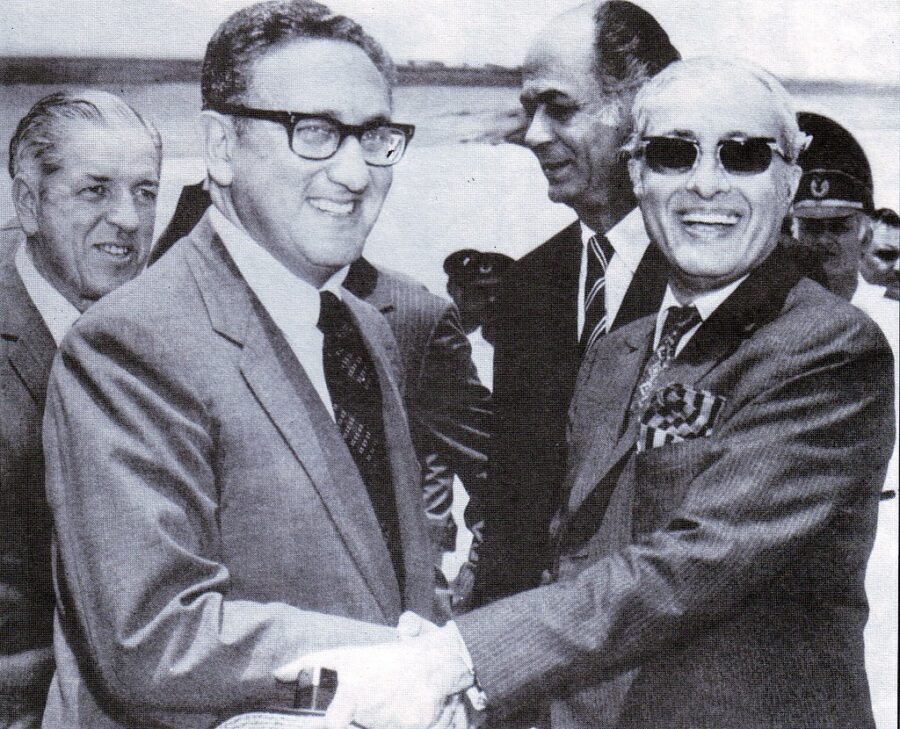
Moreover, the longevity of Kissinger’s influence poses questions about the ethical dimensions of political advisory roles. His post-1970s role as a sought-after advisor raises concerns about accountability and the repercussions of decisions made behind closed doors. The opacity of Kissinger’s client list, even when heading the 9/11 Commission, speaks to a culture of secrecy that permeates elite circles.
Conclusion
As we contemplate the lessons from Kissinger’s legacy, it is essential to evaluate the impact of unchecked power and realpolitik calculations on global stability. For better or worse, the geopolitical landscape he helped shape serves as a cautionary tale. The enduring echoes of his decisions, whether in Southeast Asia or Latin America, demand a nuanced understanding of the interconnectedness between diplomacy, morality, and the human cost of geopolitical maneuvering.
In conclusion, the legacy of Henry Kissinger reveals a figure whose influence transcends the temporal boundaries of his foreign policy career. While some lauded his contributions to realpolitik, a critical examination exposes a darker side of pragmatic decision-making that has left lasting scars on the world. The challenge lies in confronting this complexity and deriving lessons that can inform a more ethically grounded approach to foreign policy in the future.
If you want to submit your articles, research papers, and book reviews, please check the Submissions page.
The views and opinions expressed in this article/paper are the author’s own and do not necessarily reflect the editorial position of Paradigm Shift.
